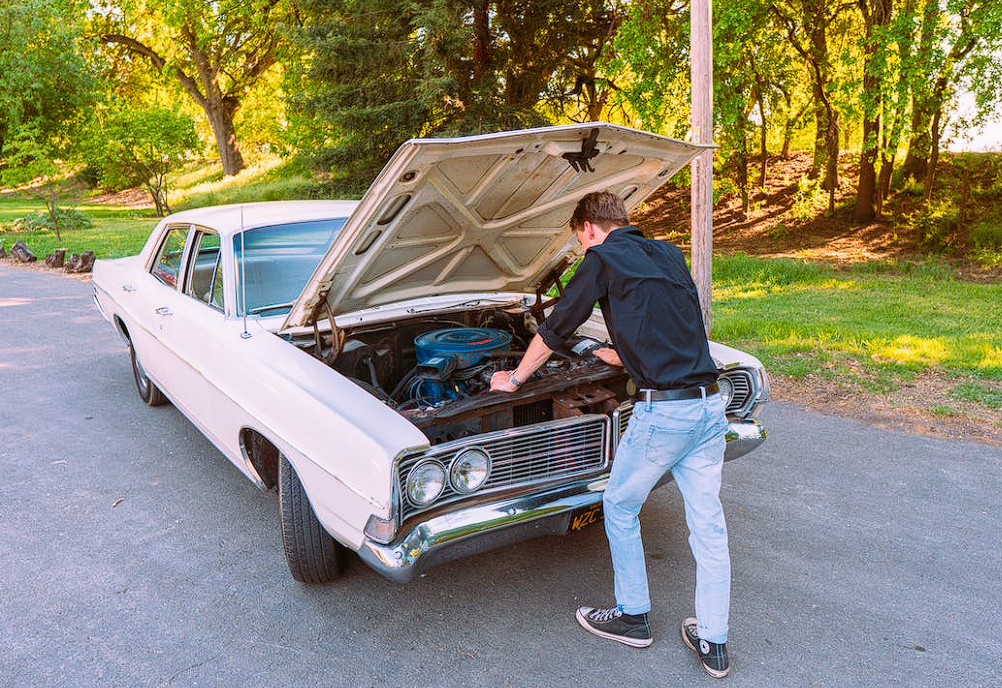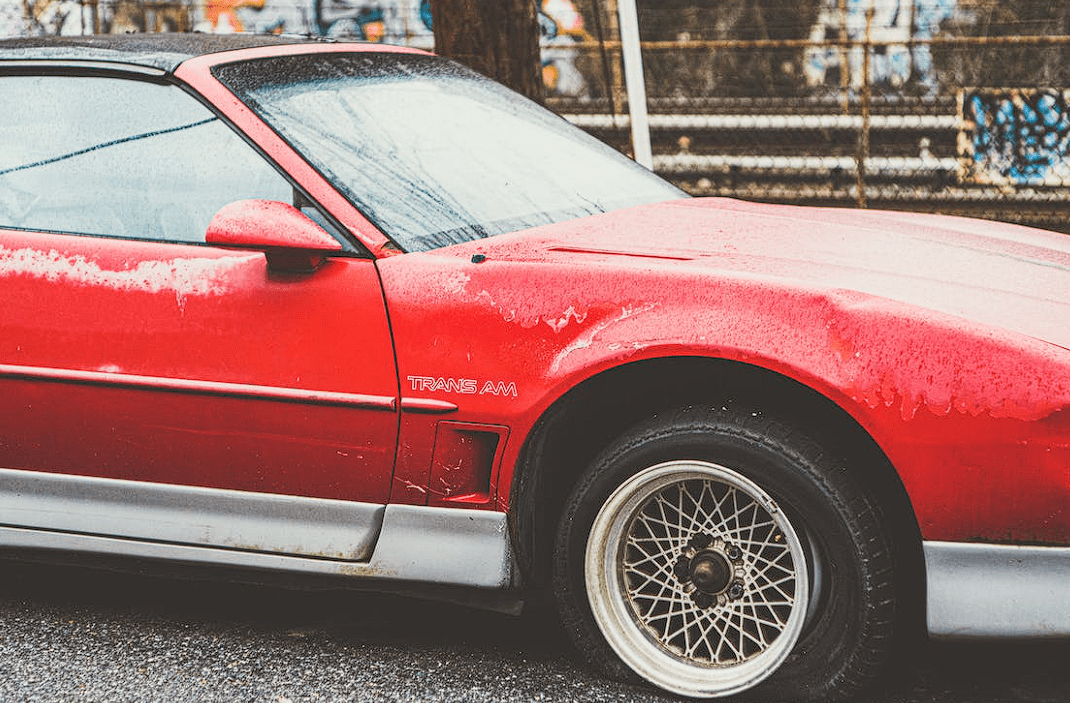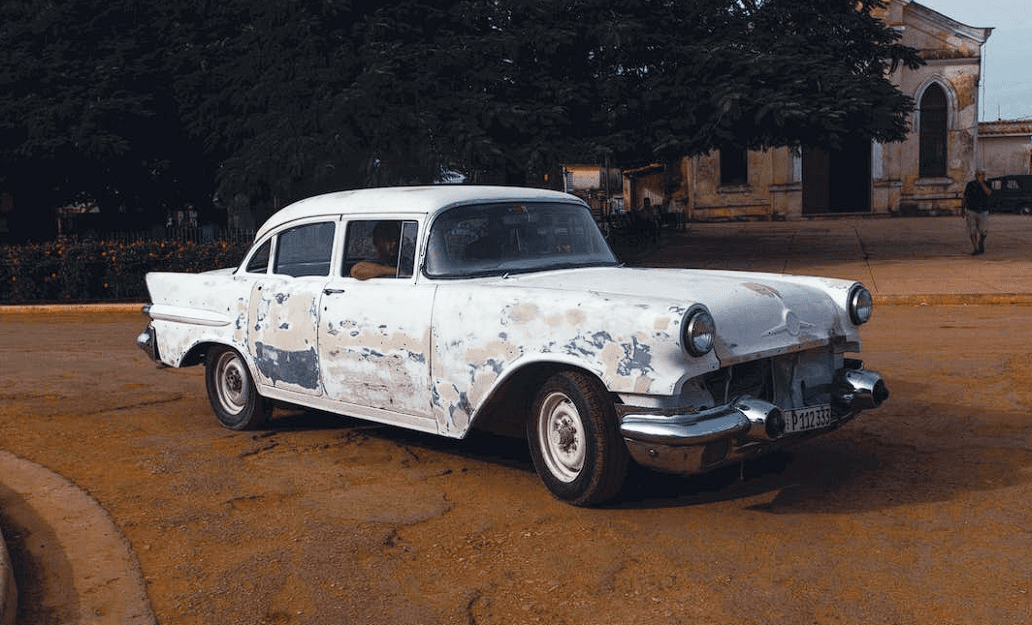Many people think only of the practical and financial aspects of getting rid of a junk car, such as selling it to the proper person or salvaging its parts. But one important detail frequently needs to be addressed is how to deal with personal items that can be forgotten in the vehicle.
The term "personal belongings" can refer to essential documents, sentimental things, or precious possessions that contain either emotional or financial significance.
Appropriately handling these possessions is not only a matter of legal and ethical obligation, but it also ensures that nothing significant is lost or harmed in the course of the procedure.Don't let your old car take up space in your garage any longer - get cash for cars today!
In this article, we'll talk about the different ways you can deal with the contents of junk cars, the problems you might encounter, and the solutions you might find.
What Should You Do With The Personal Items In Your Junk Car?
You have just had a brilliant idea: you should deal with and take care of your possessions before scraping your car and never honour and submit the importance. Knowing what needs to be done and sticking to a systematic plan may help you recover your possessions and figure out what to do with them.
The good news is that professionals in the automobile industry have devised a procedure that might enable you to promptly deal with personal possessions without the effort or hesitation that something might go wrong after selling the car.
Let's take a deeper look at the options available to you about the belongings of your scrap cars:
Determine The Most Common Locations For Personal Belongings.
Once it is determined that all of its belongings will be removed, the vehicle must be inspected before being sent to the intended recipient or scrapped. You must now learn how to retrieve your items and where they are most likely to be located.
Place your items safely and securely, such as the trunk, centre console, glove box, or under the seats. You never know what might have fallen under the seats, so check there, especially if you have kids or pets.
Understand What To Search For
The first and most important step is to become familiar with the characteristics to search for. It's possible that many people don't place a high value on certain things, but after learning about the potential repercussions, they often reconsider their position.
You should start by checking the obvious places: your clothes, paperwork, jewellery, phone, electronics, etc. Because it contains private or sensitive information that could compromise your safety, vehicle professionals frequently make allusions to customers' possessions in order to avoid getting to the point when it comes to paperwork.
It would be best to forget the essentials, your favourite clothing, or the clothes you've been carelessly tossing into the car. When you've had a car for a while, it starts to feel like a second home, and you stop giving much thought to how much stuff you might find in there.
Use These Suggestions To Sort And Organise Your Personal Belongings.
It would be best if you had a good idea of where you are and what to look for. Then, knowing how to arrange these personal items is the next step. For example, large trash bags are a common way for people to transport valuables from their homes to their cars.
That's why labelling the objects appropriately is a good idea. For example, put the paperwork in a different box or bucket from the rest of the items. Then, you can better decide what to do with these items once they are sorted.
Consider all of your choices concerning private property.
Determine What To Do With Your Personal Belongings.
Your entire collection of personal stuff has been gathered into one location; the next step is to decide what to do with these personal belongings. To begin, those who are knowledgeable about automobiles suggest selecting one of the following:
Keep Or Discard
It's possible that the belongings of your car need to be fit for both resale and donation. In that situation, you can choose to store them away or get rid of them based on whether or not you believe anyone will make use of them.
Having things piled up all over the place is a certain way to produce a mess and make your home appear overrun with things you use sparingly. Instead, you should find a recycling centre and dispose of the items there instead of bringing them into your house.
Donate Or Sell
Suppose you believe you will need help to use these valuable personal belongings. In that case, you may investigate the possibility of selling or donating them instead. These days, people are willing to sell virtually anything, and they are able to do so by using some standard online platforms.
You should try selling them if it's worth your time. If not, it could be very generous of you to donate these things to those in need while helping a cause you care about.
Items You Should Remove From Your Vehicle Before Scrapping It
If you've made the decision to get rid of your old car, you probably already know what needs to be done. The cost of fixing something can exceed our profit from selling it in its current condition. So keep making money while getting rid of your old car. It's fine if your car isn't running, but that doesn't mean it's useless. Delivering a car to a scrap yard is risky, and you could easily lose your cash.
It takes only a few days to earn enough money from junking your car to buy a new one.
Nevertheless, before you take it to the junkyard, you'll need to take out a few key components. You can make more money from the sale of certain components than you would from selling them to a scrap dealer. In addition, you have some treasured possessions that hold special meaning.
Taking All Of Your Personal Items
You can safely store your items in your car for months. But, if you decide to sell it for scrap, it's important to clear it out first. All the drawers and closets need to be opened and emptied.
It would be best if you never kept anything hidden that you might need in an emergency. Many things can leave an impression on you. Consequently, it would be best if you got rid of them, given that there is no way to retrieve them.
Remove The Licence Plates
Your licence plates are the physical link between you and the vehicle. In the same way, your name and social security number (SSN) are linked, and your SSN is associated with your person. So before you finalise the sale of your vehicle, check to see that the licence plates have been removed and screwed away.
When you've taken them off, it's time to brush up on the regulations governing licence plates in your state. In some places, you can switch plates from one car to another. If doing so is legal where you live, you can reuse your old licence plates on your new vehicle to replace your junker.
When removing the plates, call your insurance company to let them know the vehicle has been sold. Your insurance coverage will be suspended until you decide to resume it.
All Non-Metal Components Must Be Removed
Remember that when you scrap your car, you will only be compensated for the metal components. It must be segregated because it employs no non-metallic components. The true worth of a junk car can be difficult to assess at times.
You must take out the leather seats and all the plastic components from your vehicle. Providing only the metal component to junk will maximise the amount you receive for scrapping your vehicle.
Remove All Valuable Car Parts
Instead of spending money fixing it, you decide to sell or scrap it. Many high-priced auto components are still fully operational. The motors, wheels, radio, battery, audio system, etc., are all included.
The price you receive for each item when sold separately will be fair. A mechanic can help you remove these items so you can sell them on the secondary market. Only if you take them to a scrap yard will you be compensated for them.
After Removing Unnecessary Auto Parts, Consider The Appropriate Weight Scale.
You can expect to receive the same amount regardless of how much you weigh. Therefore, it's important to find a vendor with a reliable scale. After removing all the plastic and rubber, the person should inspect your car. Again, knowing the exact weight is essential to determine how much money you will receive.
Many people can take advantage of you and treat you like a fool. Avoid them and take your junk car to someone you can trust. Once you've emptied your car of all extraneous cargo, you need to know how much it weighs. In the scrapyard, the weight should look the same. You can avoid financial loss by paying attention to these particulars.
Insurance Policy Cancellation
Everyone thinks about getting insurance and pays premiums until the policy ends. If your car doesn't exist, then neither does your insurance policy. You must terminate all insurance coverage by ceasing premium payments.
In the event that you have already paid for the protection, you may be eligible for a return of at least some of the money. On the other hand, if you have up-coverage, you are required to inform the insurance dealers. Because of this, it is essential to have a conversation with the agent to cancel the policy at the appropriate time to prevent further complications.
Prepare Your Documentation
Make sure you have the proper paperwork in order before you take your junk car there. It's your responsibility to scour the filing cabinets for any relevant paperwork. You should amass and store them all in one place. Transferring ownership of an item requires proper documentation.
Hence, the scrapper may request this paperwork, and you should be ready to provide it. Make sure to leave sensitive paperwork in the car, as you won't be able to retrieve it once it's trashed.
The Advantages Of Properly Handling Personal Property
Environmental Impact Reduction
The environmental impact of junk car disposal can be mitigated by donating or recycling any usable items found inside. For example, clothing, tools, and electronics that are still in working condition can be given to those in need or recycled to cut down on the consumption of new materials and maximise efficiency. Proper disposal of unwanted materials also helps prevent pollution of the environment and encourages responsible waste management.
Preventing The Loss Of Sentimental Or Important Items
To avoid losing sentimental or valuable items, car owners should dispose of their belongings in a scrap car in the correct manner. Losing cherished possessions, priceless family photos or crucial paperwork can be devastating. A vehicle owner can reduce the risk of irreparable loss or damage to themselves or their things by removing all of their personal effects from the vehicle before selling it for scrap. This requires them to search the vehicle and retrieve all their items carefully.
Avoiding Financial And Legal Repercussions
There may be financial and legal repercussions if personal belongings are mishandled in a junk car. Theft of personal information or legal trouble could result from, for instance, leaving insurance papers or a registration in a junk car. Owners risk losing money if anything of value is lost or broken during the vehicle's disposal. Vehicle owners can save time, money, and stress by keeping their personal belongings out of the wrong hands and out of court.
Conclusion
Most people don't give much thought to the logistics of junking an automobile until they realise they have forgotten something valuable inside. Things that are important to you can be anything from important papers to cherished keepsakes to necessary documents. Experts in the auto business have developed a process that may free you from having to take extra time or worry that something would go wrong after selling your vehicle. Before the car can be sent to its intended receiver or scrapped, it must be inspected to establish the most typical areas for personal goods. The first and most crucial step is deciding what you want to look for.
The most crucial information here is how to properly organise your automobile with your possessions. Knowing where to search and what to look for, as well as giving things descriptive names, is crucial. The next step is to make a plan for the future of these items, including whether to keep them, throw them away, donate them, sell them, or sell them through internet marketplaces. Technicians and salespeople in the auto industry frequently make references to clients' personal property as a way to put off dealing with the necessary documentation. The fundamentals of getting rid of an old car before scrapping it are outlined in this essay.
Key components should be removed, along with personal items and licence plates. Make sure the licence plates have been removed and screwed away, and that all drawers and cabinets have been emptied before selling the car. You should also familiarise yourself with the rules regarding licence plates in your state, as doing so may be legalised in some locations. You should notify your insurance company of the sale of your vehicle. Take out all the plastic and leave nothing behind but the metal bits.
Check the vehicle's weight at a trusted vendor's location. Stop paying insurance premiums and your coverage will expire. The main points of this article are the benefits of properly disposing of a trash car and other personal goods. These include lowering negative effects on the environment, protecting sentimental or expensive possessions, and staying out of legal hot water. Avoiding costly repairs or legal trouble is only one benefit of handling personal property with care. Talking to the agent is also crucial for cancelling the policy at the right time.
Content Summary
- Don't forget to deal with your personal belongings before getting rid of your junk car.
- Personal belongings can include essential documents, sentimental items, and valuable possessions.
- It's important to handle personal belongings properly to avoid loss or damage.
- Professionals have devised a procedure to help you deal with personal possessions without any hassle.
- Check common locations for personal belongings such as the trunk, centre console, glove box, and under the seats.
- Familiarize yourself with the characteristics to search for, including clothes, paperwork, jewellery, phone, and electronics.
- Organize your personal belongings, label them, and sort them.
- Consider all the options available for your personal property.
- Choose to keep, discard, donate, or sell your personal belongings.
- If you have items to dispose of, find a recycling centre instead of bringing them into your home.
- If you have valuable personal belongings, consider selling or donating them to help those in need.
- Determine what items to remove from your vehicle before scrapping it.
- The cost of fixing your car may exceed your profit from selling it in its current condition.
- You can still make money from a non-functioning car.
- Take out certain components before taking your car to a scrap dealer to make more money.
- Personal items can be safely stored in your car for months.
- Decide what to do with your personal belongings before you sell your car.
- Salvage your car for parts or sell it to someone who can fix it.
- Look for personal items in obvious places.
- Remember your favourite clothes or items you carelessly toss into your car.
- You can use large trash bags to transport your valuables.
- Label the items appropriately to sort and organize them.
- Determine if you should store or get rid of your belongings.
- Selling or donating your personal belongings can help someone in need.
- You can make money by selling valuable items.
- Donating your items can help support a cause you care about.
- Scrapping your car takes only a few days to earn enough money to buy a new one.
- Some components are worth more money than selling them to a scrap dealer.
- Treasured possessions can hold special meaning.
- Take out personal belongings before taking your car to the junkyard to avoid losing them.
Frequently Asked Questions
It is recommended to remove personal belongings before selling a scrap car. Not only is it a legal and ethical responsibility to properly handle personal belongings, but it can also lead to the potential loss or damage of sentimental or valuable items.
If the items are unusable and cannot be repaired or recycled, they may need to be disposed of properly as regular or hazardous waste, depending on the type of item. Again, following local regulations and guidelines for proper disposal are essential.
Come across valuable or sensitive items like jewellery, important documents, or valuable possessions in your scrap car. It may be wise to seek professional help from a legal or financial advisor to ensure proper handling and prevent potential legal or financial issues.
Yes, broken electronics found in a scrap car can often be recycled according to local recycling guidelines. However, following proper recycling procedures to prevent environmental contamination and promote sustainability is important.
Properly handling personal belongings in a scrap car is important to avoid losing or damaging sentimental or valuable items, reduce environmental impact, and prevent potential legal and financial repercussions. Therefore, it is a responsible and ethical practice to ensure proper personal belongings are properly managed during car disposal.



